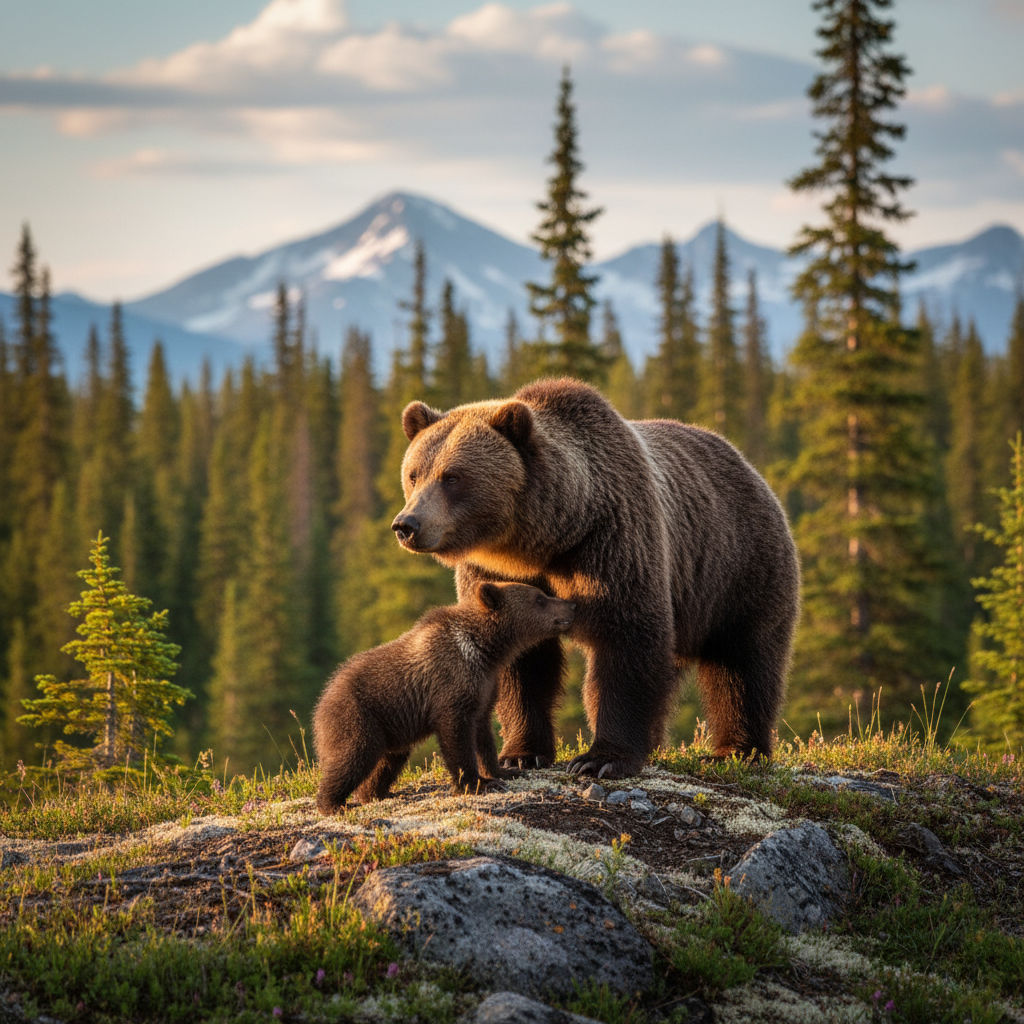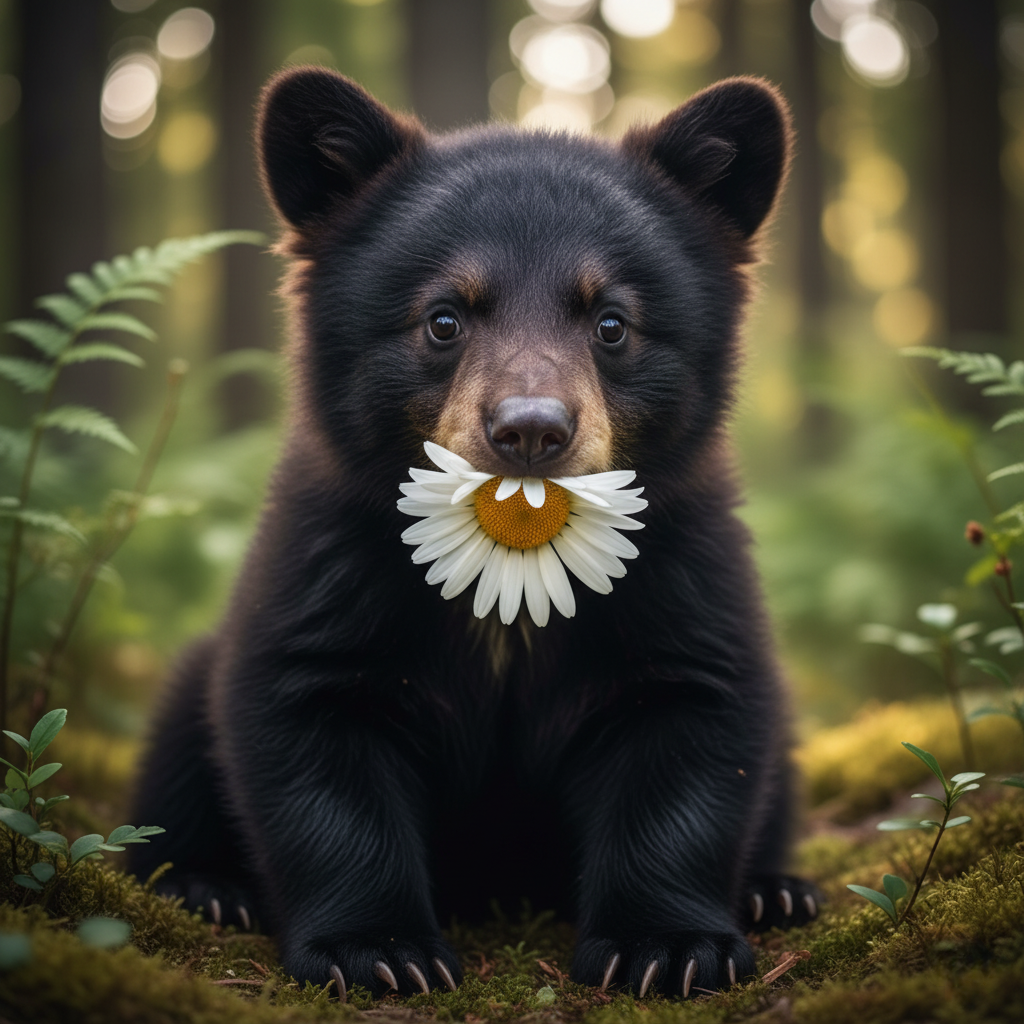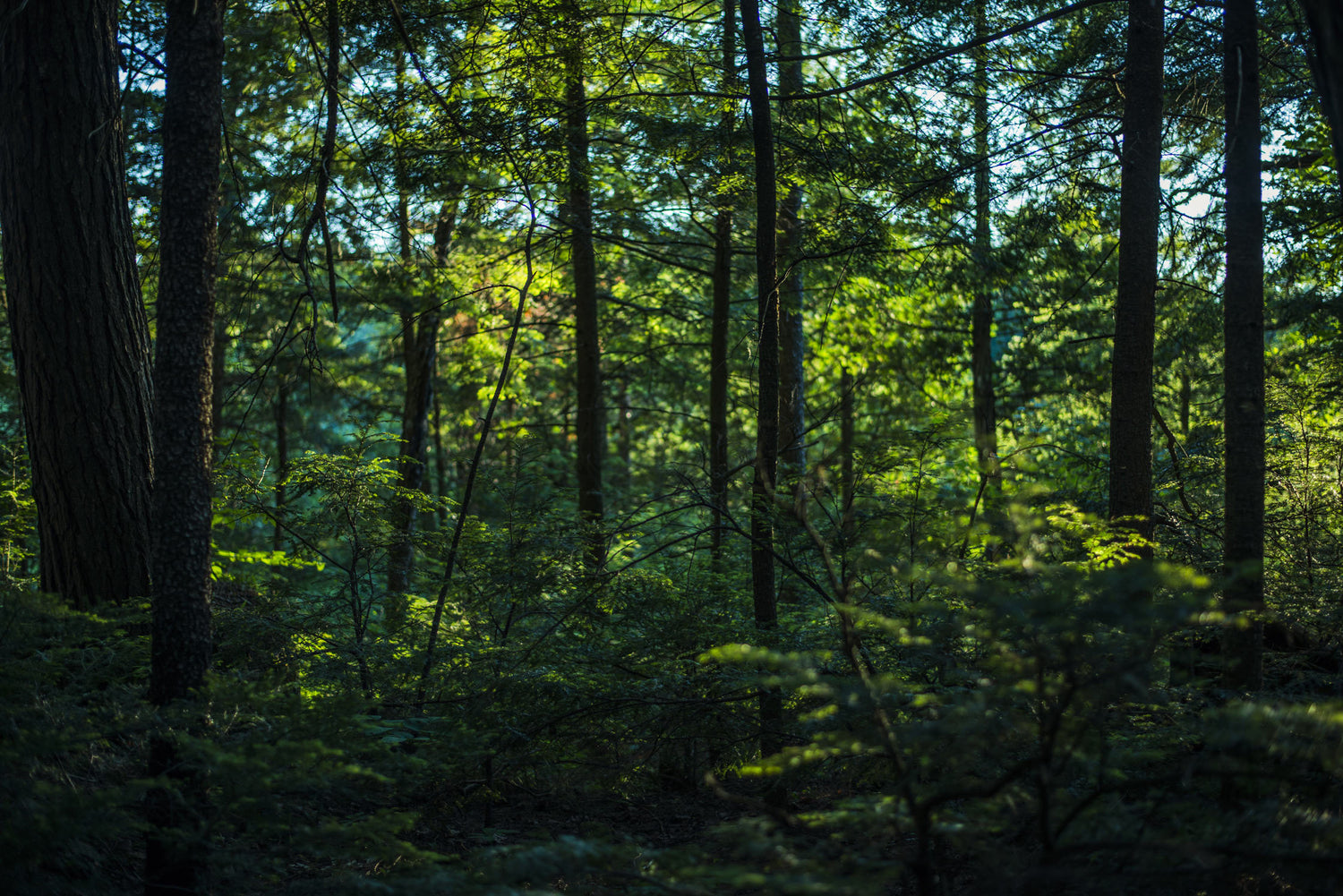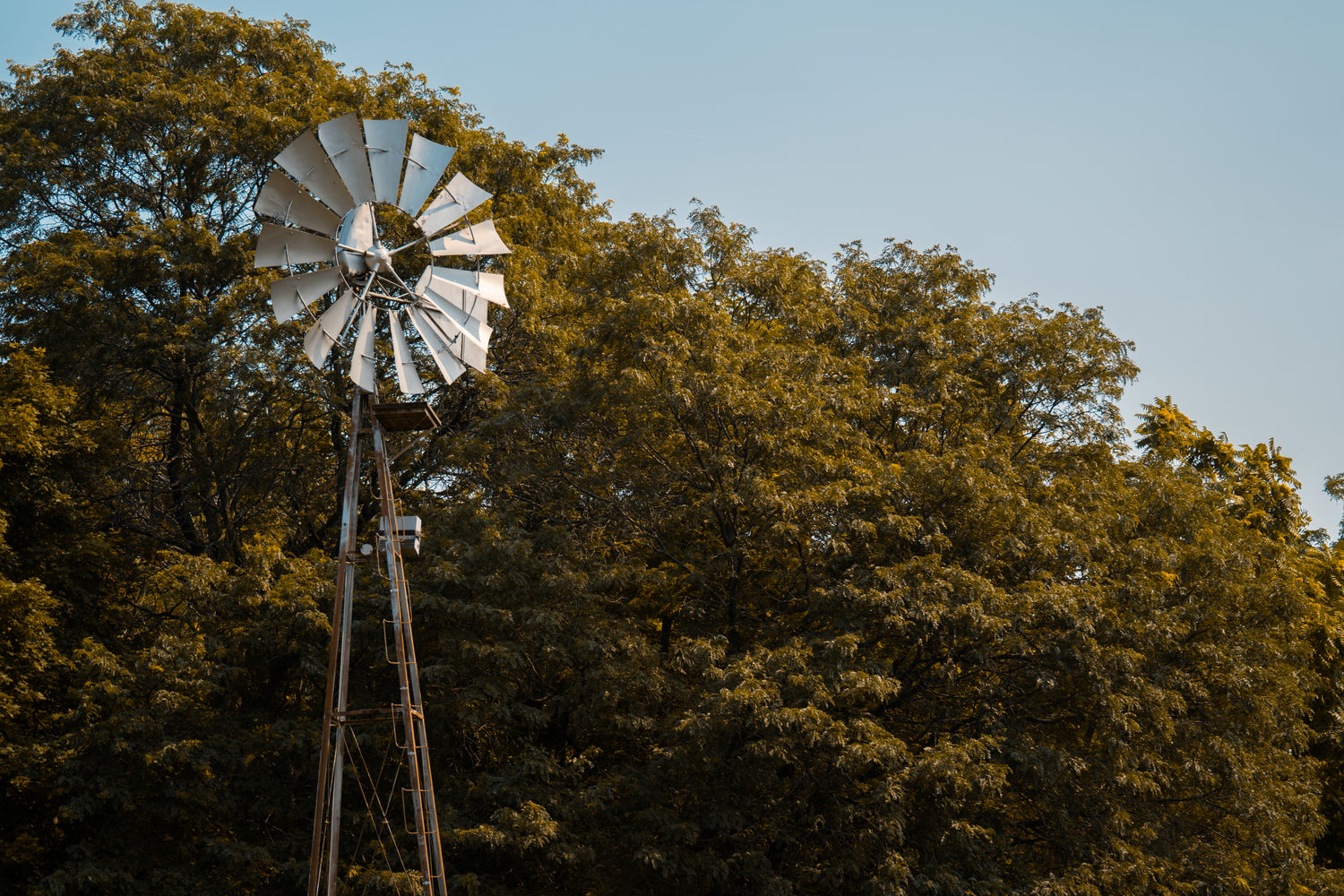The Impact on Bears
Bears, like many other wildlife species, face increasing risks as human activities encroach upon their natural habitats. This encroachment often leads to habitat loss and fragmentation, bringing bears into closer proximity to human settlements.
This proximity raises the likelihood of human-bear conflicts and can result in negative outcomes for both bears and humans, such as an increased risk of bears being shot and humans being mauled. Organic farming, with its focus on sustainable practices and habitat preservation, plays a role in mitigating habitat loss and reducing human-wildlife conflicts.

How our Shopping Habits Affect their Lives
Every choice at the checkout ripples into the wild. When we shop fast and careless, demand for unsustainable goods clears forests, pollutes rivers, and pushes bears closer to human towns where conflict is inevitable. But mindful shopping tells a different story: choosing eco-conscious fabrics, supporting ethical brands, and cutting waste protects the forests and food sources bears depend on. The way we shop can either shrink their world or keep it whole.

Habitat Preservation
Organic farming practices prioritize the preservation of natural habitats and the maintenance of diverse landscapes. By avoiding the use of synthetic chemicals and promoting biodiversity, organic farms contribute to the protection of bear habitats. Preserving intact ecosystems helps maintain the connectivity of habitats, allowing bears to move freely within their natural ranges and reducing the need for bears to venture closer to human settlements.

Conservation of Wildlife Corridors
Organic farming can support the establishment and maintenance of wildlife corridors. These corridors are essential pathways that enable bears and other animals to move between fragmented habitats, reducing isolation and promoting gene flow among populations. By integrating features like hedgerows, tree lines, and native vegetation, organic farms can contribute to the creation of wildlife corridors that help connect bear habitats and increase their chances of survival.

Reducing Habitat Loss and Deforestation
Organic farming minimizes habitat conversion by using sustainable land management techniques like agroforestry and conservation easements. It preserves intact ecosystems, providing undisturbed areas for bears and promoting their natural behaviors. Crop rotation in organic farming maintains soil health, reduces pests, and lessens reliance on pesticides. By optimizing land use and avoiding deforestation, organic farming safeguards bear habitats and ecosystems. It supports coexistence, minimizes habitat loss, promotes biodiversity, and preserves bear populations long-term.

